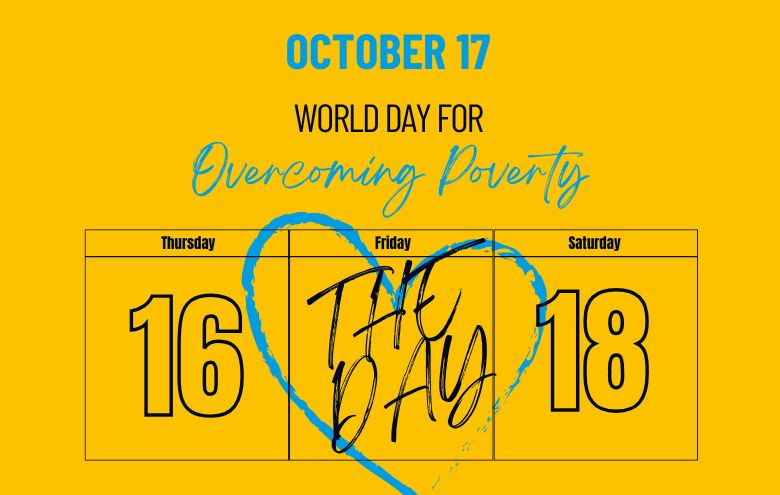World Day for Overcoming Poverty 2025

Message from the ATD Fourth World International Leadership Team for October 17, the World Day for Overcoming Poverty.
![]() Reading time 4 minutes
Reading time 4 minutes
“Why did they have so much power over me? Why did they believe they were the only ones to be right? I am lucky that people have witnessed my past, otherwise nobody would have believed me.”
These thoughts of a tireless advocate in the fight against extreme poverty in Switzerland are shared by people around the world whose primary concern each day is to survive. They cannot envision a future for their children and young people, they need someone to attest to their courage and hope, and they need friends and allies to share their ambitions and overcome challenges alongside them. Following are examples of some types of advocacy that are rarely recognised.
- A local civil registrar in Senegal, despite the reluctance of his colleagues, manages to issue birth certificates for each child in his district so that each child can say: “I was born — I exist — Add me to the list”.
- Parents in France come together to discuss their situation with social workers, judges, and lawyers, demanding that their rights be respected and asking for the support they need — support that is not merely assistance, but can also empower them and other organisations and community partners. Every one of us is needed to build a future for our children.
- Women in Bolivia dare to get together to speak up about the shame and guilt they live with because of the abuse they endure. They understood that their experience is not unique to them, that their concerns are not just individual concerns. They decided to get training and learn new skills to be in a position to help other women facing domestic violence.
- Young people in the Democratic Republic of the Congo regularly visit a mother who continues to gather stones from a quarry even when her employer cannot pay her because of the war. With the visits, this woman — a single parent — no longer feels abandoned. She says she feels respected and finds the strength she needs to continue for her children.
All these examples demonstrate that maltreatment, whether institutional or social, is not inevitable. They are forms of violence that affect people’s lives, but that can stop if we learn from people who endure it, if we join them in their determination never to give up, and if we work together to take action.
Today, wherever we are in the world, we are overwhelmed by the violence that is spreading — from lawless wars to climate catastrophes, from homelessness to famine. Our world seems to be plagued by instability and inhumanity.
We risk becoming desensitised by all the violence, but acts of courage, resistance, and reconciliation — though they may be small — do exist. Advocates work tirelessly to overcome poverty everywhere around the world, taking risks to free themselves from the power exerted by others and to seek freedom and peace in impossible circumstances. In the midst of the suffering, the acts of courage may go unseen and the voices of the advocates, unheard.
Joseph Wresinski’s words, inscribed on the Human Rights Plaza in Paris, resonate louder than ever:
“October 17, 1987. On this day, defenders of human and civil rights from every continent gathered here. They paid homage to the victims of hunger, ignorance and violence. They affirmed their conviction that human misery is not inevitable. They pledged their solidarity with all people who, throughout the world, strive to eradicate extreme poverty.
“Wherever men and women are condemned to live in extreme poverty, human rights are violated. To come together to ensure that these rights be respected is our solemn duty.”
This is an invitation to unite, not to take power over anyone, but to develop together the power to take action and to insist that the dignity and human rights of everyone be recognised.
Bruno Dabout, Martin Kalisa, Chantal Consolini-Thiébaud
International Leadership Team
International Movement ATD Fourth World

